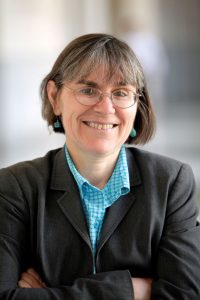Name: Margarita M. Balmaceda
Hometown: Cambridge/Somerville, MA
Current Position: Professor of Diplomacy and International Relations, Seton Hall University and Associate, Harvard Ukrainian Research Institute (HURI)
Professional Interests: Comparative Politics, Energy Policy, Infrastructure, Governance, Corruption, Trans-border trade, Ukrainian-EU Relations
Why did you decide to join the Shevchenko Scientific Society?
I wanted to support NTSHA’s mission, to continue the tradition started in Lviv nearly 150 years ago and help NTSHA develop a stronger local presence in the Cambridge/Boston area. Last but not least, I wanted to encourage other scholars without a Ukrainian family connection to discover and join NTSHA.
What do you value about membership in the Society? What is your most memorable Society’s event or publication?
I am proud of being part, through NTSHA, of a long, distinguished and resilient academic tradition which –through very hard work– was able to survive in exile after the Soviets dissolved the original organization in 1939. I greatly appreciate Halyna Hryn’s work in bringing NTSHA closer to a younger generation of scholars and scientists, and Myron Stachiv’s work in making the most of NTSHA resources to help scholars, including PhD students. I have been a member of the Stipend Committee (Стипендійна комісія) for many years, and am always amazed at the important research made possible with NTSHA’s support. I myself benefited from this support in 2013, when I received a grant from NTSHA to help defray publication costs for the first edition of my book The Politics of Energy Dependency: Ukraine, Belarus and Lithuania Between Domestic Oligarchs and Russian Pressure (Toronto: University of Toronto Press, 2013, paperback 2015).
How did your interest in Ukrainian culture and society influence your career path?
I first came to Ukrainian Studies (and to the Harvard Ukrainian Research Institute) with an interest in geopolitics and in understanding Ukraine’s role in Russian-Central European relations. But being exposed to Ukrainian news and discussions on a daily basis inexorably led me to energy issues. Many years and three books later, I can only say that Ukraine has been key to my career path as both a political scientist and a specialist in energy issues.
What is your current research project?
I am completing a 6-year book project that forced me to learn more about energy production technology, coal, and even “Ukrainian for mining and metallurgy” than I ever thought possible. The title is Russian Energy, Value Chains, and the Remaking of Politics from Siberia to the European Union: Chains of Value and Power in Natural Gas, Oil, and Coal and will published this summer by Columbia University Press. Following three energy molecules (a natural gas molecule, an oil molecule. and a coal molecule) traveling from production jn Siberia to final use in Germany via Ukraine, this book analyzes how the unique material characteristics of different types of energy affect how each type of energy may be “used” – not only technically but also politically. I brings technology into the discussion in a very didactic way, and I hope it will be an easy way to introduce students into the subject.
What career advice would you give for new members of the Shevchenko Scientific Society?
First, build a reputation for yourself as a reliable colleague with whom it is easy, worthwhile and interesting to work. But most importantly: stay close to your passions! Yes, we must all compromise in one or another way to get funding, publications, and positions. But at the end of the day, only passion and true interest will carry you through every up and down in the road and keep you a vital and relevant well beyond tenure.

